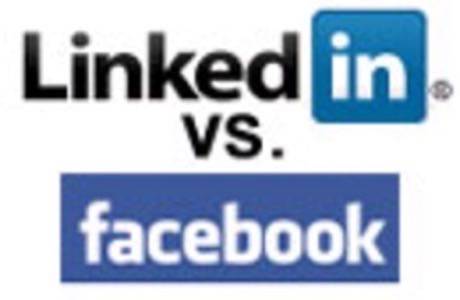Last November we asked you, “In 6 months time, will you have more business contacts in Facebook than LinkedIn?” 62% of you said LinkedIn, and only about a quarter chose Facebook. It’s now been about six months, so how do the two services stack up? Has Facebook caught up with LinkedIn for Facebook? Will it ever? And what about Xing?

My personal experience has all been with LinkedIn and that has been very positive:
- Even more of my contacts have connected on LinkedIn (even technology conservatives are joining).
- I have used it for recruitment as well as business development, with some success as reported here.
- LinkedIn now provides an RSS feed into my start page, so I can quickly scan what my contacts are doing, adding a touch of serendipity as well as pure curiosity.
My experience on Facebook has been light. Recently Dave McClure invited me to connect on on the site — o that is not a picture of me kneeling in obeisance to a Valley mover and shaker — and this experience got me thinking about differences/similarities:
- Similar. Both try to get you to use their messaging. That is such a retrograde step. Why would anybody use a proprietary email system that is limited only to that service? I have occasionally used LinkedIn messaging but only because I had no other alternative. If that person is a genuine contact, then I have their email address, why would I use anything else? One semi-plausible reason is spam control, but Gmail has got that issue pretty well nailed in my opinion.
- Different. Facebook prompts public communication e.g the Wall. That is fun/different I guess. I also assume it gets old fairly quickly. What is the business value? We are talking deals, not dates here. In business this is like online whiteboard services, used for collaboration. Do I need to be on Facebook to do that?
I think the case for Facebook rests on all the cool guys entering the workforce who won’t use anything else. So, to reach them you gotta be on Facebook. Is that it? Is Facebook a tool to recruit people coming out of college?
As you may have guessed, I am still of the opinion that LinkedIn is the better tool for business.
What do you think?
LinkedIn’s value to users is clear; their value as a business, however, is less clear. But that may be due to the fact that they are a private company and so there is not any hard data to go on. Xing, the European alternative to LinkedIn, is public and recently published their quarterly results:
- Record quarter: Total revenues increased by 91 percent to 7.51 million euros (~$11.6 million)
- EBITDA increased by 500% over Q1/2007
- Number of Premium Members increased by 60 percent within one year to 420,000
Thats pretty impressive. It would be interesting to see the numbers LinkedIn is probably floating around as various unsubstantiated rumors say that they are looking to:
- do an IPO, or,
- sell to News Corp. or somebody else, or,
- raise another round
Which just about covers the strategic options.
USA Today, apparently with a source at LinkedIn, or at least not denied by LinkedIn, says:
“With more than 1 million people joining each month and projected 2008 revenue of $75 million to $100 million, LinkedIn Corp. seems likely to deliver another big payoff for [founder Reid] Hoffman.”
That is heady growth, which would make any of the above strategic options viable. But this is a projection. To compare with Xing one would need to see last quarter revenue (about $11.6m for Xing). Take that $11.6m for Xing and multiply by 4 and you get an annual run rate of $46.4m. If they keep up their current 91% growth rate that would put Xing right around where LinkedIn is projecting ($46.4m + 91% = $88.82m). So, as we reported back in March, it is a two horse race for global online business networking. It is possible that Xing has actually got their nose out in front.
As we reported back in December, LinkedIn’s key asset is a young and rich demographic (younger than Wall Street Journal, richer than Facebook). That’s the key to their business.
What would be most revealing would be the number of paying subscribers. Xing reports that, and Xing is clearly profitable. My concern about LinkedIn as a business is that it is too dependent on advertising.
But then so is Facebook. And the key question asked 6 months ago is will Facebook eat LinkedIn’s lunch in the business market or will LinkedIn continue to pull ahead in that key segment. You know what this “suit” thinks (Xing is leading by a whisker, LinkedIn is close behind and looking strong, Facebook just fell at the last jump). What do you think?
















